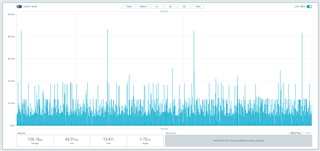HI,
I recently migrated my nrf52840 based devices to Thread and Zigbee SDK 4.2.0
I used to have a good power consumption around 100-150uA with zigbee enabled.
Since SDK migration I'm seeing high power consumption when zigbee is active (device is paired). If my device isn't paired power consumption is very low. (< 100uA)
Are there any changes relative to low-power management with this new SDK that I should be aware off ?
If that can be of any help here is a screenshot of the power profiling.

Thanks,
Sebastien



